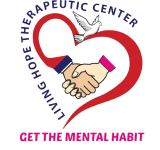Cognitive Behavioral Therapy (CBT) is a widely recognized and effective treatment option for addressing addiction. Here’s an overview of how CBT can be used to treat addiction:
1.Understanding the Addiction Cycle:
CBT helps individuals understand the thoughts, feelings, and behaviors that contribute to their addictive patterns.
It focuses on identifying the triggers, cravings, and automatic thoughts that lead to substance use or addictive behaviors.
2– Developing Coping Strategies:
CBT teaches individuals practical skills and strategies to manage cravings, resist temptations, and cope with high-risk situations.
This includes techniques like cognitive restructuring, where individuals learn to challenge and replace unhelpful thoughts with more adaptive ones.
3- Behavioral Modification:
CBT encourages individuals to replace addictive behaviors with healthier, alternative behaviors.
This can involve setting specific goals, developing new routines, and practicing new skills to replace the addictive patterns.
4- Relapse Prevention:
CBT helps individuals identify potential relapse triggers and develop specific plans to prevent or manage relapse.
It emphasizes the importance of recognizing and addressing lapses or setbacks as part of the recovery process.
5- Addressing Underlying Issues:
CBT often explores the underlying factors that contribute to addiction, such as trauma, mental health conditions, or maladaptive coping mechanisms.
By addressing these underlying issues, CBT can help individuals develop a more comprehensive and sustainable approach to recovery.
Research has consistently demonstrated the effectiveness of CBT in treating various addictions, including substance use disorders, gambling addiction, and behavioral addictions. CBT is often used in combination with other evidence-based treatments, such as medication-assisted therapy, support groups, and holistic approaches, to provide a comprehensive and personalized treatment plan.
Overall, Cognitive Behavioral Therapy is a valuable and well-established treatment option for individuals struggling with addiction, as it empowers them to develop the necessary skills and strategies to achieve and maintain long-term recovery.





